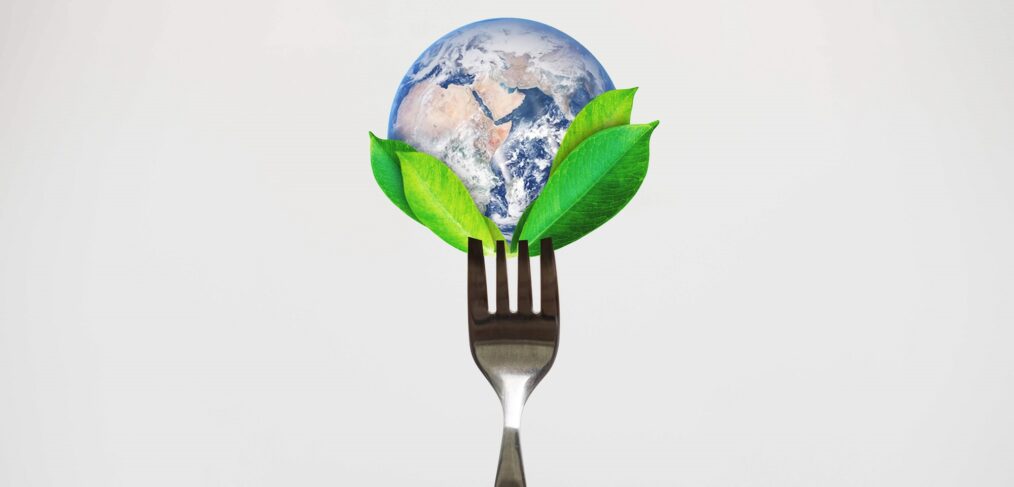
Consumers Expectations For The Environment And the Impact on Your Brand
Consumers are concerned with global warming, and the impact it is having on the environment. Global tragedies linked to global warming are happening in front of our eyes every day. Though fossil fuels receive most of the attention, the food sector is highly scrutinized. Globally, wasted food contributes 11% of the world’s total greenhouse gases, of which restaurants, grocery stores, and households account for 83% of all food waste.[i] In Canada, food waste contributes 56.5M tons of greenhouse gas emissions each year. “According to the Royal Bank of Canada, if we were to reduce 50% of our food waste by 2050 and stick to plant-based foods, we could avoid emissions worth 26.2B tons of greenhouse gases.[ii]
“The latest report from the Intergovernmental Panel on Climate Change (IPCC) confirms that, if nothing is done, the constant build-up of greenhouse gases (GHG) in the atmosphere will cause temperatures to increase by more than 1.5ºC above pre-industrial levels over the next century, namely the target set by the Paris Agreement to minimize the negative effects of global warming”.[iii] Today, consumers are demanding businesses take action to reduce their carbon foot print. Maple Leaf became the world’s first major carbon-neutral food company in 2019. With the focus on bringing more environmentally friendly foods to the table, this gives rise to:
“Consumers Expectations For The Environment And the Impact on Your Brand”

What is Global Warming?
Since the Industrial Revolution, the global annual temperature has increased in total by a little more than 1 degree Celsius, or about 2 degrees Fahrenheit. Since 1981, however, the rate of increase has more than doubled. The result? A planet that has never been hotter. The effect of this can damage or destroy agriculture and fisheries.
What are Consumers’ Expectations?
In the UK, half of consumers’ want to reduce their carbon footprint by making changes to their food choices.[iv] As consumers become more engaged, they expect the same from businesses.
Sixty-Five percent (65%) of consumers expect CEOs to do more to make progress on societal issues, including reducing carbon emissions, tackling air pollution, and making business supply chains more sustainable.[v] In addition, 88% of consumers want brands to help them become “more environmentally friendly and ethical” in daily life.[vi] As part of Nielsen IQ’s study titled “Sustainability: The New Consumer Spending Outlook”, research revealed “Climate Change” as consumers’ top concern, and listed
- Reduce the amount of plastic in packaging.
- Elimination of material waste.
- The introduction of sustainable packaging material
as the top 3 priorities they want companies to take action on.[vii]
What Actions are Consumers Taking?
This past year Climate Neutral helped Rare and the Centre for Behavior and the Environment conduct an independent research study to assess consumer valuation of climate-neutral labels. Their research revealed:
- 87% of consumers value carbon-neutral products over similar unlabeled products.
- 92% of consumers perceive carbon-neutral labeled products to be more sustainable, healthy, and of higher quality.[viii]
According to a survey from McKinsey and Co, research revealed:
- 66% of all respondents and 75% of millennials consider sustainability when they make a purchase.[ix]
Who is the Most Active Consumer?
The majority of consumers support an array of measures to address climate change, especially Gen Z and the Millennials. Greta Thunberg is a Swedish 19-year-old environmental activist known for challenging world leaders to take immediate action. As part of a study undertaken in April 2021 by the Pew Research Centre, they revealed:
- 67% of Gen Z and 71% of Millennials said “Climate should be the top priority to ensure a sustainable planet for future generations”.
- 37% of Gen Z and 33% of Millennials said: “Addressing Climate Change is my top personal concern”.[x]
It is the younger generation, specifically those consumers between the ages of 18 to 24 years old who are three times (3X) more likely to switch brands to those whose values align with there’s on climate change.[xi] It is the same consumer segment who are willing to pay more for sustainable products. Seventy-three (73%) of Gen Z and sixty-eight (68%) of Millennials indicate a willingness to pay more for such products.[xii]
What are Examples of CPG Firms Committed to the Environment?
Presently, I have the pleasure to work with 2 brands that are committed to change and the environment:
- Bentilia Red Lentil Pasta – www.bentilia.com. Recently purchased by GFI Global Food – www.gfiglobalfood.com, Bentilia red lentil plant-based pasta (pulse lentil) will launch nationally in 2023. Pulse lentils use less water vs. all other sources of protein, and emit 4-5x lower emissions than other grains.
- Refresh Packaging – www.refreshpackaging.ca. Women-empowered business, Christine Reyes will launch nationally in 2023 the first line of compostable freezer-compliant zip-lock bags, and compostable wrap. Regular plastic zip-lock bags are made from crude oil, which generates significant pollution.
New research from Morning Consult shows that while people are concerned about climate change, familiarity with the concept of carbon neutrality is not as common as one might think. New data from them suggests 59% of consumers incorrectly identified what the term “Carbon Neutral” meant.[xiii] For food businesses, what this may suggest is that more transparency and education of customers is advisable.
I leave you with this quote:
“As Consumers We Have So Much Power to Change The World By Just Being Careful In What We Buy”.
Emma Watson
[i] What Does Food Waste Have to do with Climate Change, www.ecologicprograms.org
[ii] Food Waste in Canada, www.seeds.ca, December 2021
[iii] Environmental Impacts Associated with Food Production, www.observatoireprevention.org, September 2021
[iv] Half of Shoppers Want to Cut their Carbon Footprint through Food But Greenwashed Brands Beware, www.foodnavigator.com, February 2022
[v] Consumers Expect Brands to Address Climate Change, www.deloitte.wsj.com
[vi] Do Consumers Really Care About Carbon? www.linkedin.com, August 3 2021
[vii] Sustainability: The New Consumer Spending Outlook, Nielsen IQ, November 2022
[viii] Understanding How Consumers Value Climate Neutral Certification, www.climateneutral.org, March 2022
[ix] Most Consumers Want Sustainable Products and Packaging, www.businessnewsdaily.com, August 2022
[x] Gen Z, Millennials Stand Out for Climate Change Activism, Social Media Engagement with Issue, www.pewresearch.org, May 2021
[xi] Consumers Expect Brands to Address Climate Change, www.deloitte.wsj.com
[xii] Do Consumers Really Care About Carbon, www.linkedin.com, August 2021
[xiii] Most Consumers Don’t Know What Carbon-Neutral Actually Means, www.restobiz.ca, August 2022





